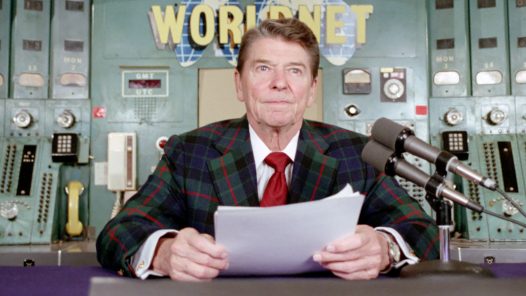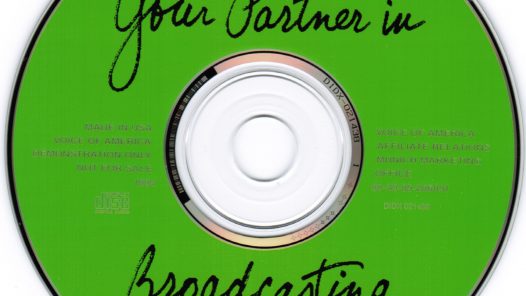In the early 1950s, the Voice of America (VOA) started to attract bipartisan support after several years of strong criticism earlier, mostly from Republicans but also from a number of Democrats, that some of VOA’s pioneer executives and journalists...
Toward the end of the Cold War in the 1980s, the Republican administration of conservative President Ronald Reagan greatly increased spending on U.S. international broadcasting to the Soviet Union and to other communist-ruled nations. Broadcasts to...
Cold War Radio Museum 1990 VOA Polish Service Bilingual Polish-English Newscast The Cold War was almost over in 1989-1990. The Voice of America was looking for new ways to deliver news to Eastern Europe. The bilingual VOA Polish-English...
2019 MP3 Recording of Original VOA Audio, Video with NASA Photographs, Transcript and Images of VOA’s 1969 LP Record by Cold War Radio Museum MP3 Audio of 1969 VOA Radio Broadcast on LP Record 2019 Cold War Radio Museum Video with NASA Images and...
Originally posted on December 4, 2013 Today’s political prisoners who are fighting for democracy and human rights are still being held in China, Iran and in many other countries. While much of Central and Eastern Europe, previously under Soviet...
USIA Director Edward R. Murrow responds in this 1961 audio recording to a question from a Voice of America reporter about Murrow’s unsuccessful attempt to censor his own documentary “Harvest of Shame.” The documentary about migrant agricultural...
In a 1989 Worldnet television program moderated by Ted Lipien, then director of the Voice of America (VOA) Polish Service, and broadcast on VOA Polish radio program, Polish Television and Polish Radio, Dr. Zbigniew Brzezinski discussed historic...









